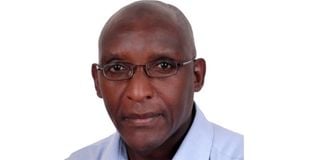Prime
Will Buganda return to NRM after 2026?

Author: Okodan Akwap. PHOTO/FILE.
What you need to know:
The President’s ultimate dream is the attainment of a federation for East Africa
Ask not if President Museveni will step down in 2026; ask if Buganda will return to NRM after 2026. I could give a dozen reasons why I think Museveni will run for re-election in 2026, but let me limit myself to just two.
The first reason is his drive to tame what he calls “Buganda sectarianism.” In the 2021 General Election, NRM posted the worst performance in Buganda since 1996 when the first presidential election was held under the “no-party” system (parties were banned). My analysis of events in the run-up to 2021 polls makes me suspect that the President had something up his sleeve.
Tired of being reminded about the alleged debt of gratitude he owed Baganda, who sacrificed a lot for him to seize power in 1986, and tired of Buganda’s incessant demands for federo (type of local regionalism), Museveni seems to have thought of how to put an end to that.
Like judokas who use the action of levers to floor opponents, Museveni needed a lever in his iffy relationship – perhaps entanglement – with Buganda. Unwittingly, a political novice, Robert Kyagulanyi, aka Bobi Wine, seems to have presented himself as the perfect lever.
Popular in Buganda, Bobi Wine whipped up the kind of political excitement not seen in Buganda since the time of Kabaka Yekka (Kabaka only) party of the early 1960s and the “No Lule, no work!” street marches of 1979. (President Yusuf Lule, a Muganda, had been removed from office.)
Museveni’s reaction to this mass support for an upstart politician was unusual. First, he allowed Bobi Wine to progress from leading “people power” to heading a registered party – National Unity Platform (NUP). Then he picked three two-bit singers – Catherine Kusasira, Buchaman and Full Figure – to superficially counter Bobi Wine in the ghettos of Kampala.
Two things happened. First, Bobi Wine galvanised Buganda nationalism – which Museveni saw as Buganda sectarianism – to the point of giving NRM a crushing defeat in the sub-region in 2021. Secondly, NUP’s popularity spilled over to Busoga where NRM also got a thorough thrashing.
I believe this gave Museveni the perfect opening for playing the victim card. Acting rejected, he departed from his usual tendency. He removed from Baganda the seat of Vice President he usually “reserved” for them and gave it to Iteso.
By dint of fate, the third most powerful seat also went to Teso after the sudden death of Speaker of Parliament Jacob Oulanyah. And Ms Robinah Nabbanja, from Bunyoro, gladly occupied the seat of Prime Minister. Baganda were sidelined. They no longer had a seat at the high table. Now, apart from his backyard in the western parts of the country, Museveni’s calculating eyes are scanning the horizons in Teso, Lango, Karamoja, Acholi, and West Nile. He’s eyeing block votes in these areas.
These are areas he will concentrate on during campaigns for 2026 polls. He will also put up a fight to get Busoga back to the NRM fold and further isolate Buganda. If this works, by 2031 when Museveni runs for a new term, Buganda may “vote wisely” and return to NRM, perhaps with a tinge of regret for the excitement of 2021. Museveni will have accomplished his mission.
The second reason that makes me believe President Museveni will continue running again and again revolves around the unsettled matter of East African political federation. In my view, no other leader in the region has been as consistent as Museveni in pushing for the attainment of an East African federation. Nearly 17 years ago, I argued in this newspaper that Museveni was using the federation thing as an excuse for not handing over power. (See, ‘East African Community an excuse for Museveni to continue clinging on,’ Daily Monitor, January 12, 2006.
The President’s ultimate dream is the attainment of a federation for East Africa. But how near or farfetched is it? Dr William Ruto, Kenya’s President, appears to have given Museveni backing by calling him “the father of the region.” It’s an encouragement for Museveni to keep running for reelection.




